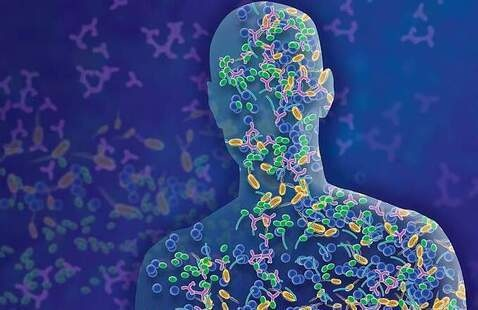NC State’s science community came together Thursday morning for “A Conversation With the Microbiomes Cluster” to discuss the microbiome work within the University, the field as a whole and everything in between.
The event was part of a relatively new series for the University called “Cluster Conversations,” organized and facilitated by the Director of Science Engagement Jory Weintraub.
“About a year ago we started this series, and once a month we pick one of those clusters and invite faculty and postdoctoral students within the cluster and have an informal conversation,” Weintraub said. “It’s not a seminar and there’s no PowerPoint. It’s meant to be informal and to be something that’s for faculty, students, grad students — even the general public is welcome to attend.”
Cluster hiring is a tactic used by universities and departments to expand knowledge and progress within a specific field. Institutions like NC State occasionally accumulate funding to hire several faculty at once to build around a theme or topic through a special hiring process, in this case, the Microbiome and Complex Microbial Communities cluster.
“It’s like any faculty search, but what’s novel about a cluster hire is that they’re normally hiring two or three people at a time who have overlapping interests in the particular area,” Weintraub said. “They try to emphasize an interdisciplinary search. You don’t want to bring in four biologists; they want to bring in a biologist, a bioengineer, a computational scientist, things like that. There’s space to accomplish more than someone thinking one-dimensionally through their perspective.”
The Chancellor’s Faculty Excellence Program was launched in 2011 to “bring together the brightest minds in a range of academic disciplines and give them the support to tackle global issues.” The program houses 21 clusters, including microbiomes, with the hopes for more outlined in the Wolfpack 2030 Plan.
Thursday’s conversation was led by Rob Dunn, the senior vice provost for University Interdisciplinary Programs, as well as personnel within the cluster. Associate Professor Benjamin Callahan, Assistant Professor Nathan Crook and postdoctoral scholar Alexandra Imre formed the panel highlighting the event.
Dunn and the three cluster members analyzed the state of the microbiome field, the effects of artificial intelligence in research and the influence that collaborating in a cluster has had on their work. The panel also expressed a desire to pursue grants and financial opportunities down the line once the cluster reaches new heights.
Working in Raleigh presents an exclusive opportunity for staff that other universities may not be able to offer — providing a platform for research throughout the discipline.
“NC State is well positioned at the intersection of some very interesting areas of microbiome science,” Callahan said. “We have a lot of expertise in engineering as well as plant science and agriculture applications. Those have been underserved in microbiome science, so that’s a bit unique in comparison to other places doing microbiome science. That’s one area where NC State can be and is a leader in the area.”
The panel also acknowledged the tenure process as a primary focus of the group, an important stride for faculty at any university.
The tenure process refers to a period where faculty attempts to “prove your worth” and go through an extensive stretch of review. The process can be extremely long and rigorous, but it grants a significant amount of freedom within research and job security. Earning that autonomy takes the lid off the restrictions a job can have when job security is not guaranteed and trust is still being formed.
Closing the divide between research and application creates the foundation of what the panel hopes to accomplish. As the cluster’s webpage articulates, the group finds pride in forging a path toward operationalization in the microbiome community.
“There has been a lot of work on the basic biology of microbiomes, and there continues to be a lot of work,” Crook said. “I think what is lacking is transitioning that highly qualitative understanding to a more quantitative, actionable understanding of microbiomes. A lot of our work tries to take this more basic and descriptive understanding to a more applied and quantitative understanding.”
The Cluster Conversations series will continue to feature the Chancellor’s Faculty ExcellenceProgram once a month from 8:45 to 10:00 a.m. in the Partners I Building on Centennial Campus. All events will include roughly 15 minutes of informal time to enjoy free breakfast and coffee before 30-40 minutes of conversation with Dunn and the spotlighted cluster.
The next Cluster Conversation is Oct. 17 with the Environmental Health Science Cluster. To stay in the loop about each conversation, email weintraub@ncsu.edu.














